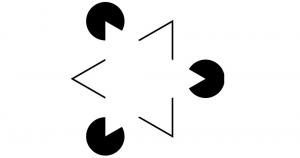Selective abstraction: what is it and how does this cognitive bias work?
The following exercise is a classic. There is a glass on a table that is half full and we ask people if they see it as half full or half empty.
Some will say one thing and some will say another, of course, but what does this have to do with real life?
The truth is that people who see the glass half empty seem to focus more on what negative than positive, and this world view may be applied to other aspects of your life.
selective abstraction It is the fact of seeing and giving greater importance to the negative aspects of things before their positive qualities. It has a lot to do with self-esteem and it is a way of seeing life that can have harmful implications in the person's day-to-day life. Let's take a closer look at this style of thinking.
- Related article: "Cognitive biases: discovering an interesting psychological effect"
What is selective abstraction?
Selective abstraction, also called filtering, is a cognitive distortion, which occurs when the negative aspects are considered more relevant than the positive ones. Despite the fact that a situation has both good and bad things, you prefer to see the bad ones and, furthermore, they are magnified. It is a style of thinking that occurs automatically, without the person thinking carefully about whether he is really giving more importance than he has a certain situation negative.
This way of thinking tends to appear in people who have been raised in environments where the weaknesses of each person or situation are highlighted, instead of also focusing on the virtues and strengths. The person ends up assimilating this way of analyzing reality, applying it in their daily life and seeing only the glass half empty.
In addition, people who think in this way justify it by believing that by looking at the negative points, they will run fewer risks. to feel disappointed or, even, to feel better when detecting faults in others, especially because they have low self-esteem.
People who apply selective abstraction in their lives tend to see themselves as more objective and analytical, thinking that they only The bad should be the center of attention in order to correct it, while there is no need to pay attention to the positive because it is already good. Yeah.
How do we apply this cognitive distortion on a daily basis?
It is quite common for people who apply this distortion in their day-to-day life to become irritated and have low self-esteem. Frequently, they have in their minds a whole catalog of what they don't like, can't stand or is outraged. If someone does something wrong, even by mistake, they can see it as a terrible aggression. They see everything that others do wrong, noticing and remarking it ad nauseam.
As we already mentioned, in addition to applying it to other people, those who apply selective abstraction also do so. about themselves, seeing themselves as especially useless and only feeling satisfied if they see that others also commit failures.
Seeing everything bad in the world, people with this style of thinking end up putting together what, colloquially, we would call a movie in their head. Anticipate the negative consequences of a certain action, only looking at the bad thing they have seen and assuming that it will get worse.
- You may be interested in: "Pessimistic personality: what 6 traits characterize it?"
Some examples
To try to see the concept of selective abstraction more clearly, we are going to see a series of examples. easily understandable explanations of how this type of cognitive distortion works:
the bus is late
We are at the bus stop and we see that it takes longer than usual. We immediately consider the possibility that the driver is totally incompetent, that he doesn't care about the users of the service, that he gives the same as making passengers wait, who doesn't care about making people arrive late... instead of thinking that, perhaps, the traffic today is terrible.
After all this rumination, we are getting angrier and angrier., anticipating the negative consequences of the delay, such as the fact that the boss is going to criticize us as soon as we arrive at the office. We also get angry with ourselves, telling ourselves how irresponsible we are for not getting up sooner and avoiding all of this.
I have not been greeted by a classmate
We are walking down the street and it happens that, in the distance, we see a classmate and we greet him, but he does not return the greeting.
Instead of considering the possibility that he simply has not seen us or that, being against the light, he has not been able to recognize us and has believed that the greeting was not for him, we began to think about the entire decalogue of possible negative reasons that have made this happens.
We think that he doesn't like us, that in class he talks to us simply out of interest or that he is socially forced to do so., that we are not popular at all, that we generate rejection to others...
The boy has failed math
Our son brings us his quarter grades and we see that he has failed math. We immediately scolded him, telling him that this wouldn't happen if he studied more, that it's the fault of the video games, that he doesn't pay enough attention, why hasn't he come out as his older brother who is engineer etc
With this example, we do not mean that the fact that a subject has been failed should be ignored, nor that nothing should be done to prevent it from happening again. The right thing to do is wonder what happened and consider the possibility of going to school reinforcement. However, in the same way that the child has difficulties with numbers, perhaps he has several strengths, such as having obtained a very good grade in art.
By focusing on the downside of failing mathematics, we ignore the child's artistic skills, emasculating his desire to be a painter when he grows up so that he becomes obsessed with passing the failed subject.
How to overcome this cognitive bias
Overcoming a cognitive distortion that has been so established throughout life is not an easy task. Having this mentality and still trying to see the positive side of things, valuing it as it should, It takes a lot of effort and takes a lot of practice..
Before deciding emphatically that something or someone is not to our liking, let's try to reflect for a moment on what we have seen. It is frequent that the first opinions are made quickly and not adequately considered. Therefore, it is convenient to try to obtain all the information possible about the situation, paying special attention to the positive.
After so much time looking for the bad and giving it too much prominence, the time has come to make way for the good in life. For example, when faced with the loss of a loved one, it is clear that the situation itself is sad and unpleasant, but that does not mean that we have lost the rest of our friends and family, in whom we can find support and comprehension.
People who suffer from anxiety have a real challenge ahead of them, but once they establish this way of seeing the world, they will soon notice its benefits. Reinforce positive thinking, avoiding thinking about the worst case scenario, can help in a very remarkable way to achieve the long-awaited calm.
If you want to achieve something, anxiety can paralyze us, and it doesn't let us fulfill our dreams. Just not trying is a guarantee of guaranteed failure. The chip must be changed, thinking that wanting is power and that at some point it will end up working out. In addition, failure should be seen as something positive, as a situation in which we learn from our mistakes.
Bibliographic references:
- Leitenberg, H., Yost, L. W., and Carroll-Wilson, M. (1986). "Negative cognitive errors in children: Questionnaire development, normative data, and comparisons between children with and without self-reported symptoms of depression, low self-esteem, and evaluation anxiety". Journal of Consulting and Clinical Psychology, 54, 528–536.
- Maric, M., Heyne, D. A., van Widenfelt, B., M., and Westenberg, P. m. (2011). "Distorted cognitive processing in youth: The structure of negative cognitive errors and their associations with anxiety". Cognitive Therapy and Research, 35(1), 11-20.
- Sundberg, N. (2001). Clinical Psychology: Evolving Theory, Practice, and Research. Englewood Cliffs: Prentice Hall.
- Weems, C. F., Berman, S. L., Silverman, W. K., and Saavedra, L. m. (2001). "Cognitive errors in youth with anxiety disorders: The links between negative cognitive errors and anxious symptoms". Cognitive Therapy and Research, 25(5), 559-575.



